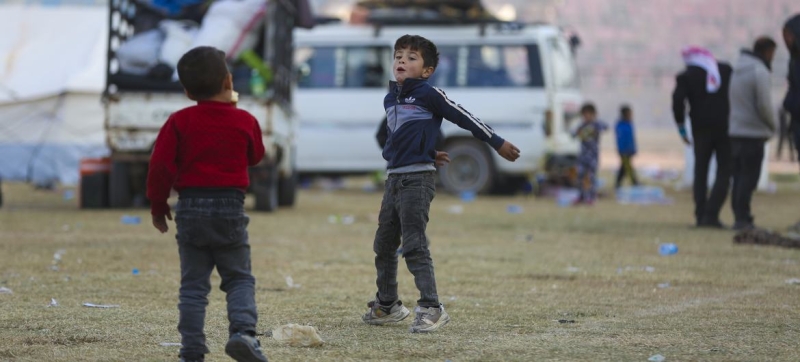
Even before the latest events, more than 16 million Syrians were in need of humanitarian assistance, more than six million had fled the country, and 7.2 million remain internally displaced. UN Human Rights Office to Support Syria’s Transition Peace and Security
A team from the UN Human Rights Office (OHCHR) will travel to Syria next week to strengthen the organization’s presence in the region and support an inclusive transition in the country. UN High Commissioner for Human Rights Volker Türk stressed that human rights, transitional justice and building trust in society must be at the core of Syria’s future.
“Transitional justice and trust-building based on human rights will be key elements in the future of the country. This is the only way to overcome the pain that families across Syria have endured for decades and build a society where the rights of all Syrians are respected, protected and fulfilled,” Türk said.
He also called on the interim authorities to take steps to preserve evidence of past crimes, including data from prisons, ministries and other archives. “This is important to document what happened and hold those responsible accountable,” he said.
On the eve, UN Secretary-General António Guterres, in his speech to journalists, drew attention to the fact that thousands of families in Syria continue to live in uncertainty about the fate of their loved ones. He recalled that the UN General Assembly created the Independent Institute for Missing Persons in Syria and announced that Carla Quintana from Mexico will head this institute.
Guterres stressed that all international mechanisms for the protection of human rights and holding those responsible for their violations accountable must have the necessary support to carry out “their important work.”
Syria at a Crossroads
Speaking at a briefing in Geneva on Friday, IOM Director General Amy Pope shared her impressions of her recent visit to Damascus. “I have just returned from Damascus, where the effects of nearly 14 years of conflict are everywhere. Syria is at a crossroads. “Her people, while anxious about the future, are determined to put the past behind them and rebuild their country,” Pope said.
Read also:
Syria: UN agencies call for increased aid to refugees, support for political transition
She stressed the scale of the humanitarian crisis: “Even before the latest events, more than 16 million Syrians were in need of humanitarian assistance, more than six million had fled the country, and 7.2 million remain internally displaced.” Pope added that the expected mass return of people will require significant efforts, including integration of returnees and transitional justice processes.
“We must help the people of Syria rebuild their country and restore their hope for a better future,” the IOM chief appealed to the international community.
Destroyed infrastructure and health crisis
The World Health Organization (WHO) Acting Representative in Syria, Christina Bethke, described the dire health situation. “More than half of the country’s hospitals are not functioning, and recent attacks on health facilities are exacerbating the crisis,” she said. WHO continues to provide vital assistance, including supporting displaced people, providing mental health care and rebuilding health infrastructure.
“We visit hospitals in Idlib, support patients like 64-year-old Ahmed who needs dialysis, and provide care to children suffering from conflict-related injuries,” Bethke said. WHO requires $56.4 million to maintain critical services in Syria.
“Without external assistance, hopes for a peaceful and healthy future for Syria could be at risk,” Bethke stressed.
UN experts urge support for Syrian people
More than a dozen independent UN human rights experts today called for support for Syria at a critical time of transition following the fall of the Assad regime. “Today is a turning point in the history of the region, offering an opportunity to achieve sustainable peace, justice and reconciliation, democratic governance and the restoration of Syria’s sovereignty,” the experts said.
They called for full respect for Syria’s territorial integrity and sovereignty, stressing the need to end lawlessness, violence and persistent violations of international law, especially international human rights and humanitarian law.
“The international community must unite to rebuild the country on the basis of democratic and inclusive principles, respecting the human rights of all Syrians, with particular attention to minorities, discriminated against or marginalized groups, women, people in vulnerable situations due to their sexual orientation or gender identity, people with disabilities, children, internally displaced persons and returning refugees,” they stressed. experts.
Independent experts, we remind you, are not UN employees and do not receive a salary from the world organization for their work.
